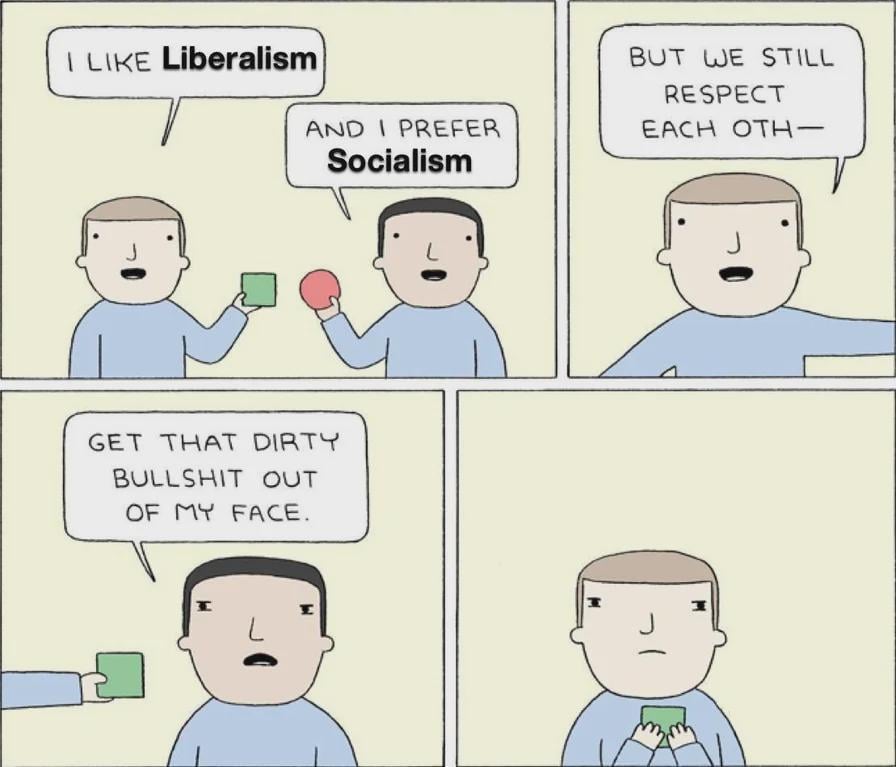this post was submitted on 09 Nov 2024
357 points (83.1% liked)
Political Memes
5479 readers
3345 users here now
Welcome to politcal memes!
These are our rules:
Be civil
Jokes are okay, but don’t intentionally harass or disturb any member of our community. Sexism, racism and bigotry are not allowed. Good faith argumentation only. No posts discouraging people to vote or shaming people for voting.
No misinformation
Don’t post any intentional misinformation. When asked by mods, provide sources for any claims you make.
Posts should be memes
Random pictures do not qualify as memes. Relevance to politics is required.
No bots, spam or self-promotion
Follow instance rules, ask for your bot to be allowed on this community.
founded 1 year ago
MODERATORS
you are viewing a single comment's thread
view the rest of the comments
view the rest of the comments

That depends on what your goals, methodology, and material conditions are.
If you have static and predictable demand for something, like, everybody needs enough food to eat and a roof over their heads, then the state can effectively plan for and deliver on that. When you have something that just needs to be done for its own sake, then introducing a profit motive isn't necessary or beneficial, and can lead to enshittification and cutting corners. There are also "natural monopolies," like for example cable where it doesn't really make sense to build another set of cable lines so the consumer is going to be left with one choice anyway, and it would be better for that to be run by the state where there's at least some democratic input on how things are done. There's also what's called "externalities" where for example building a train line makes an area more accessible and brings value to the surrounding area, beyond what can be captured by the line itself - and conversely, there are negative externalities, such as a factory putting out smog or dumping chemicals, that will lower the value of the surrounding area but the factory won't bear the brunt of the costs. There are also natural resources where the supply is inelastic so taxing them doesn't make the economy less efficient, as the Nordic countries do with their oil.
There are situations where private industry can make sense. Like, say people want plushies made of different anime characters. There's no real reason for the state to run that. There's a low barrier to entry, and different companies can use different methods to predict which character will be in higher demand and whether people will want higher quality or lower price. Or with cars, they can design different models balancing all sorts of factors from safety to performance to aesthetics.
There's also many cases where a state doesn't have the freedom to implement whatever system they want. Some states are rich in natural resources, but they are owned by foreign corporations that have owned them since colonial times. If they try to nationalize them, or even tax them, it would be beneficial to the economy but it could lead to sanctions, coups, or invasions. But generally the people in the country don't benefit from those situations and the relationship is parasitic.